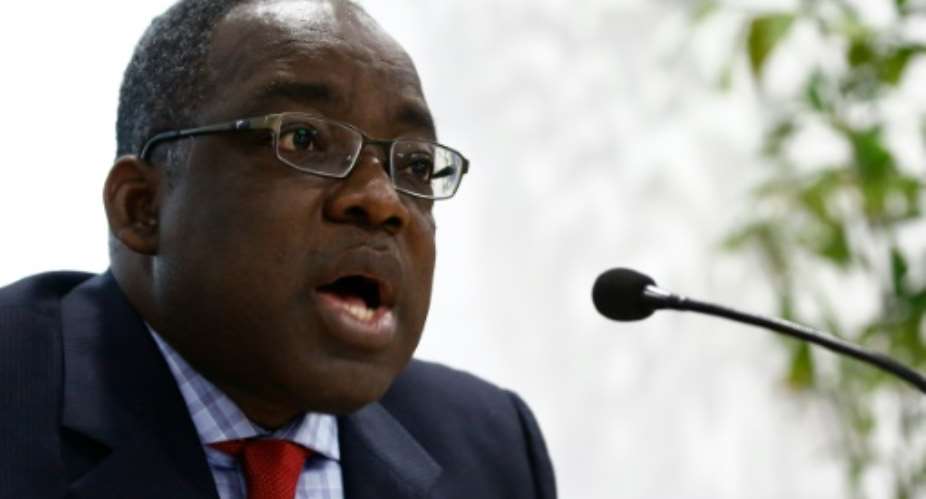Khartoum (AFP) - A senior UN rights official warned Thursday that the security situation in Darfur remained "fluid and unpredictable", two days after Sudan said the region's conflict that killed hundreds of thousands of people had ended.
Sudan held a referendum in Darfur earlier this month on whether to unite it into a single autonomous region, and on Saturday said that almost 98 percent of voters had opted to keep the region as five states.
Khartoum said the result of the referendum clearly showed that the conflict in Darfur -- a region roughly the size of France -- had finally ended.
But on Thursday, Aristide Nononsi, the UN's independent expert on human rights in Sudan, warned that the situation in Darfur was still "volatile".
"In Darfur, the security situation remains fluid and unpredictable," he told reporters after touring the region.
"This has had a direct impact on the human rights and humanitarian situation" in Darfur, he said, adding that the conflict in the Jebel Marra mountain range was of particular concern as it had caused new displacement of people.
Clashes between troops and the Sudan Liberation Army led by Abdulwahid Nur in Jebel Marra have forced at least 100,000 people from their homes since mid-January, the United Nations says.
Overall more than 2.5 million people have been displaced by the conflict that erupted in 2003 in Darfur, and according to UN figures 300,000 have been killed in the conflict.
The conflict erupted when ethnic minority rebels in Darfur mounted an insurgency against the Arab-dominated government of President Omar al-Bashir -- who is wanted for alleged war crimes in the conflict -- complaining of economic and political marginalisation.
Darfur was a single region until 1994 when the government split it into three states, and later added another two in 2012, claiming it would make local government more efficient.
- Inter-tribal clashes -
Nononsi said his concerns were highlighted during a visit to the Zam Zam camp of displaced people in North Darfur.
"The IDPs live in a state of insecurity due to the presence of various armed elements and criminality that occur within the region," he said.
"In recent weeks, nine incidents of rape of women from the camp were reported," he said, adding the incidents occurred outside the camp.
Nononsi said inter-tribal clashes in East Darfur were also killing and displacing civilians, with combattants using sophisticated firearms.
On April 18, gunmen attacked the residence of the governor of East Darfur state after violent tribal clashes in the area.
Up to 20 fighters were killed the day before in clashes between the Arab Rizeigat and Maaliya tribes in East Darfur.
While insisting that the "page on Darfur crisis has now been turned" following the referendum, a top Sudanese official said this week that Khartoum now planned to collect weapons that are widespread in the region.
"We will first collect heavy weapons which are in the hands of outlaws," said Amin Hassan Omar, the official in charge of Darfur file in Bashir's government.
Nononsi meanwhile said allegations were still rife that the country's security forces, including the National Intelligence Security Service (NISS), continued to carry out "arbitrary arrests and detentions" and also "ill-treat" human rights defenders and political activists.
"I strongly urge the government to build on its positive efforts, and for these efforts to be directed towards concrete change on the ground," he said.





 We’ll no longer tolerate your empty, unwarranted attacks – TUC blasts Prof Adei
We’ll no longer tolerate your empty, unwarranted attacks – TUC blasts Prof Adei
 Bawumia donates GHc200,000 to support Madina fire victims
Bawumia donates GHc200,000 to support Madina fire victims
 IMF to disburse US$360million third tranche to Ghana without creditors MoU
IMF to disburse US$360million third tranche to Ghana without creditors MoU
 Truck owner share insights into train collision incident
Truck owner share insights into train collision incident
 Paramount chief of Bassare Traditional Area passes on
Paramount chief of Bassare Traditional Area passes on
 Two teachers in court over alleged illegal possession of BECE papers
Two teachers in court over alleged illegal possession of BECE papers
 Sunyani: Victim allegedly shot by traditional warriors appeals for justice
Sunyani: Victim allegedly shot by traditional warriors appeals for justice
 Mahama vows to scrap teacher licensure exams, review Free SHS policy
Mahama vows to scrap teacher licensure exams, review Free SHS policy
 Government will replace burnt Madina shops with a new three-story, 120-store fac...
Government will replace burnt Madina shops with a new three-story, 120-store fac...
